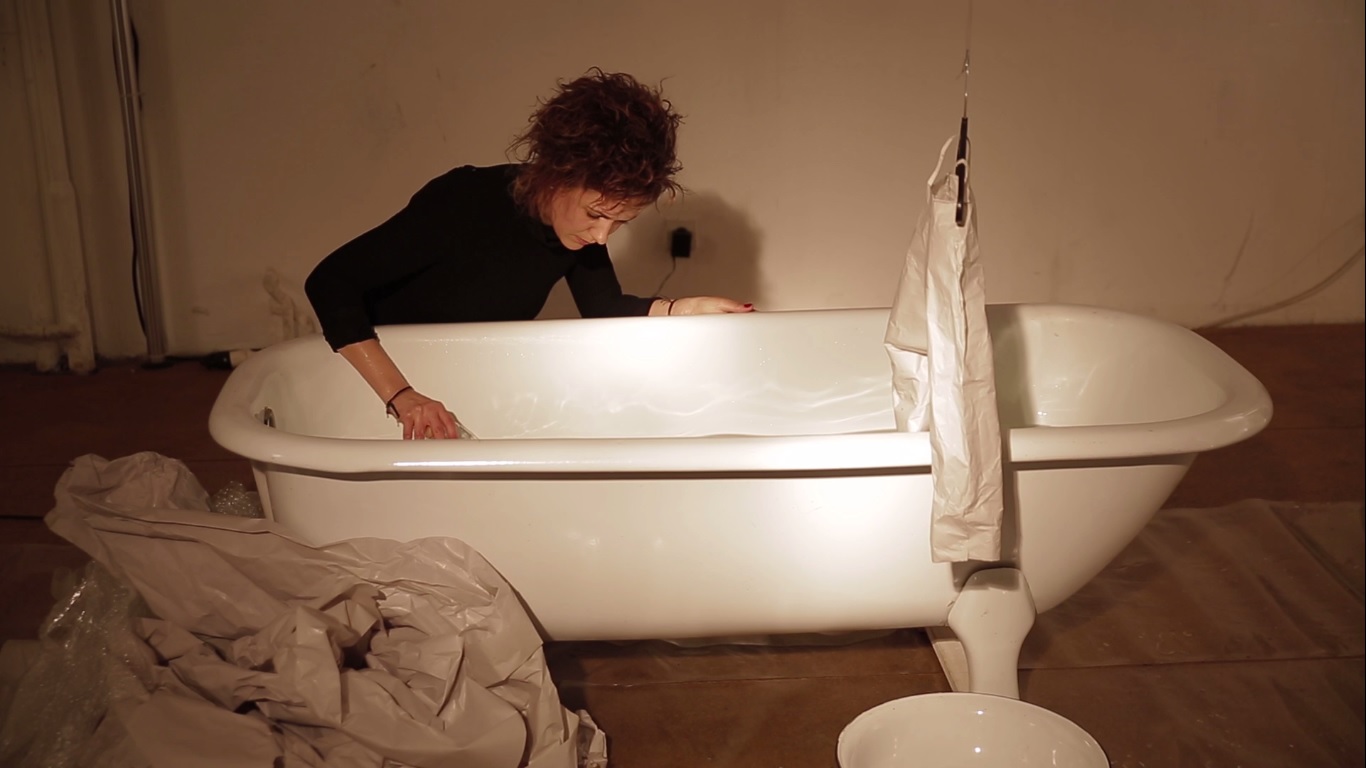
© Foto ariel rosé: Valdis Jansons © Foto Uljana Wolf: Alberto Novelli © Foto Karolina Golimowska: Andi Weiland
Where and to whom does language belong? The event In the next city, the next country, the next language will take place on Sunday 17 March at 8pm. Poets and translators Uljana Wolf and Ariel Rosé will read from their poetry collections and discuss with literary scholar and translator Karolina Golimowska how changes of residence alter the relationship to one’s own poetic language. In German, Polish and English, they will reflect on categories such as home, origins and originals and the politics of translation. As a prelude to their joint event, we asked the three of them a few questions as part of our #lettretalks series.
To ariel rosé:
Your last two collections of poetry were written in Polish, but not in Poland. Somewhere between Berlin and Norway. Is it only possible for you to get closer to your homeland and write about it with this local distance? What does this distance do to the poetic language?
There is this Polish film made by a couple, they are both artists, Anna and Wilhelm Sasnal, titled „Z daleka widok jest piękny“, meaning „It Looks Pretty From a Distance“. I have never seen it but i always loved this title. I guess this would answer your question. Growing up as a queer person in a very conservative, catholic, post-communist country made me learn quickly inner landscapes and explore them but it did not suffice at certain point. It coincided with a suicide of my best friend and my curiosity for outer landscapes. It all catapulted me out there and i have never regretted it. „Distance is the soul of the beautiful“, said Simone Weil. There was a time i was fascinated with her. Now i read more of Agamben and Afro-American thinkers but these words have accompanied me and i love living in various languages and various countries. I would call myself a water creature, above all, and then a European creature.
To Uljana Wolf:
You play with different languages in your literary work, writing between them. What spaces do the different languages open up in your writing? And to what extent do they possibly block you?
Playing with different languages is actually a way for me to un-block my German. To make it more permeable for linguistic neighbors and at the same time open up real or imagined etymologies that lie within it. My main language is German, and the play with languages has taken on various forms in my work – sometimes just a trace, sometimes more conceptual, sometimes more reflective. Always connected to thinking about monolingual habits, the mother tongue paradigm, mechanisms of inclusion and exclusion established via language purity. To which I oppose with language purrity, i.e. Caroline Bergvall’s „cat in the throat“, or Cecilia Vicuña’s „language is migrant“, or Don Mee Choi’s „cosmic dizziness“.
To Karolina Golimowska:
You work as an interpreter and translator with Polish, German and English. What interests you about translations and also moderation as cultural mediation? And why does poetry play an important role for you?
Living in more than one language has always been an enrichment for me; an additional option, an extension of possibilities to say something but also of the right to remain silent, to paraphrase Julia Kristeva. I got to know a lot about my mother tongue through the languages I learned later on in life, just like getting to know other cultures and countries taught me a lot about the one I grew up in. Translation of literature contributes to these personal findings and provides ways of a better mutual understanding between people of different vernaculars. Ideally, it can also help the readers to find something new about themselves. Poetry can be especially challenging in translation and is particularly grateful and powerful when read aloud and heard, that’s why I enjoy being on stage with it.
What can the Lettrétage audience expect on March 17 with „In the next city, the next country, the next language“ ?
This will be a multilingual, melodic poetry feast with elements of poetic prose, digressing to translanguaging, translation, art and cordial laughter.
